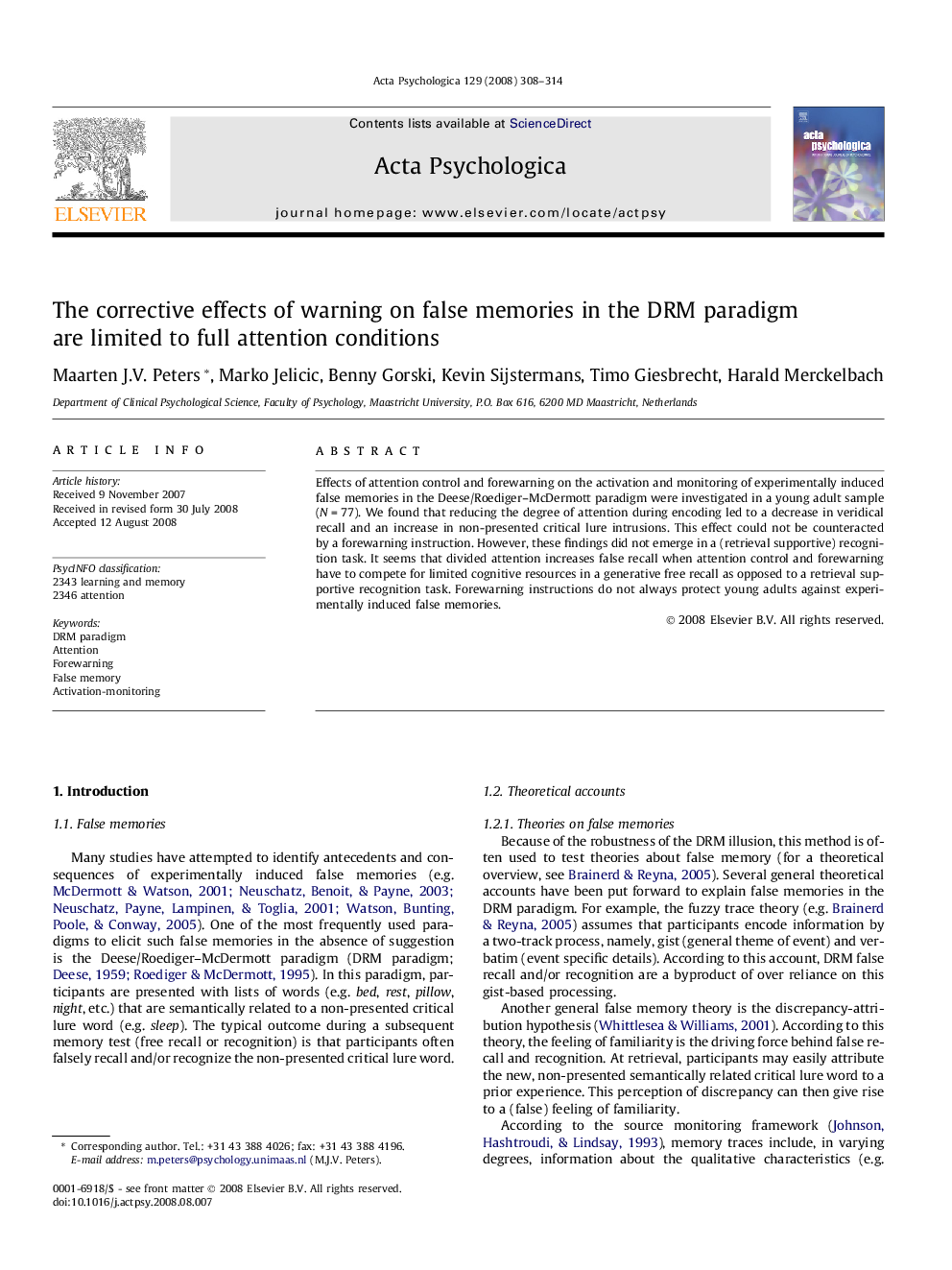| Article ID | Journal | Published Year | Pages | File Type |
|---|---|---|---|---|
| 920490 | Acta Psychologica | 2008 | 7 Pages |
Effects of attention control and forewarning on the activation and monitoring of experimentally induced false memories in the Deese/Roediger–McDermott paradigm were investigated in a young adult sample (N = 77). We found that reducing the degree of attention during encoding led to a decrease in veridical recall and an increase in non-presented critical lure intrusions. This effect could not be counteracted by a forewarning instruction. However, these findings did not emerge in a (retrieval supportive) recognition task. It seems that divided attention increases false recall when attention control and forewarning have to compete for limited cognitive resources in a generative free recall as opposed to a retrieval supportive recognition task. Forewarning instructions do not always protect young adults against experimentally induced false memories.
